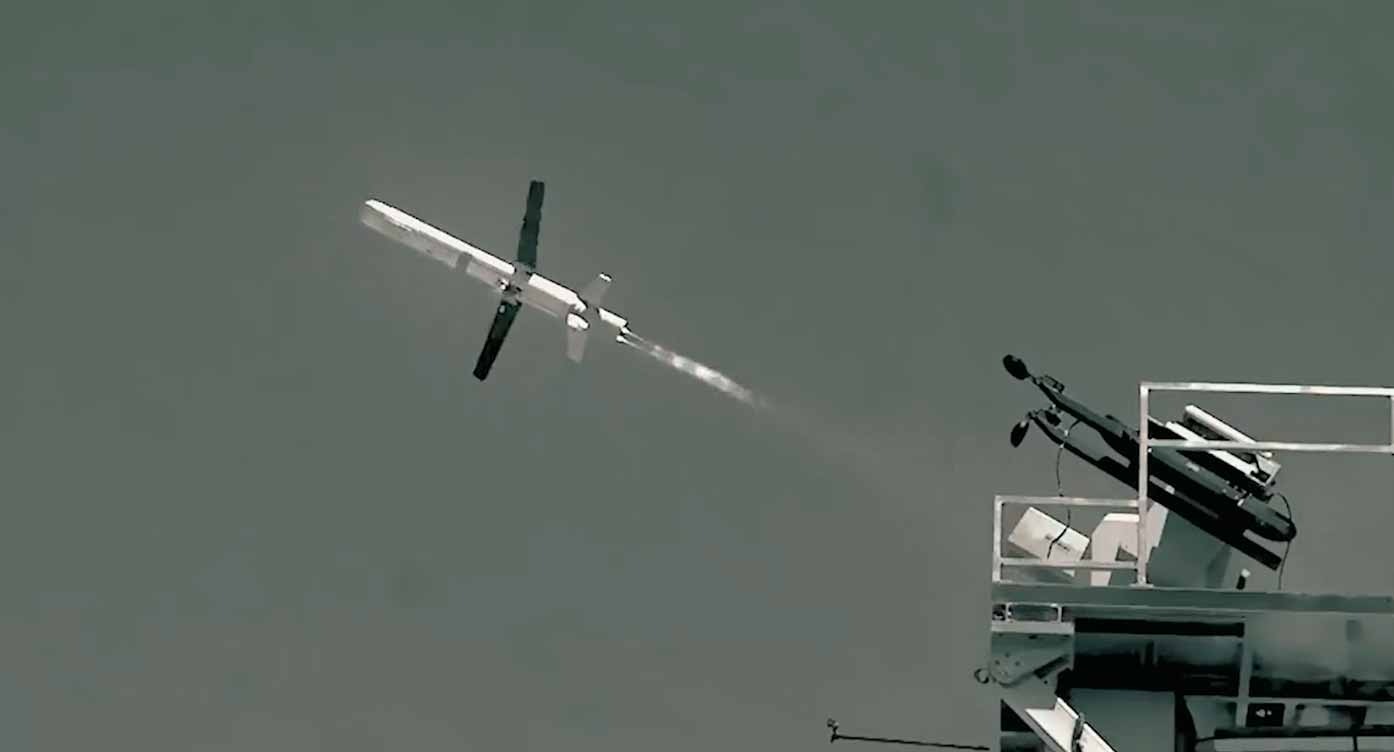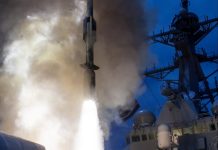Turkey has advertised its new LUMTAS-GM anti-tank guided missile (ATGM), attaining a flight range of more than 16 kilometers in a test. The Roketsan product possibly has the most extended reach than the claimed and operational ranges of six leading Russian, American, and French ATGMs.
Armed With ‘Secret Payload’, Chinese Rocket Crashed Into Moon Creating Twin Craters, US Researchers Say
ATGMs have found great utility in the current Russia-Ukraine war, with many Russian tanks destroyed by Javelins in the early months and scores of Ukraine’s Western-supplied armor by Vikhr ATGMs fired from Kamov Ka-52 gunships.
Russia also used its Fagot ATGMs for anti-personnel/infantry strikes while defending its defensive lines from Ukrainian probing attacks.
The Turkish product is revolutionary because it has the most extended range and comes amid a host of sophisticated air, naval, and land systems Turkey has produced over the years, emerging as a leading defense major alongside South Korea.
Moreover, Ankara has also indigenously developed systems that complement missile-based anti-tank warfare, like a wide range of unmanned aerial vehicles (UAV) and attack helicopters, that affect the long-range benefits of the ATGM by providing surveillance and targeting data.
Video Shows ATGM Hitting Target At 16 Kilometers
The promotional video released by Roketsan shows a ground-based target at a distance of 16 kilometers. It then shows a launching system when the LUMTAS-GM leaves the canister tube. Four wings flap open backward, and the following shots show the missile going through the middle of the marked targeting sheet from different angles.
Turdef says the LUMTAS-GM missile alone weighs 41.3 kilograms (66.3 kg with the canister), has a length of 1.72 meters, and can cross its 16-kilometer range to 20 km if fired from a helicopter. Turkey already has a light-class T-129 ATAK attack helicopter and has secured some export orders.
Genişletilmiş Uzun Menzilli Tanksavar Füze Sistemimiz (LUMTAS-GM) uzun menzilli test atışını başarıyla gerçekleştirdi ve hedefi tam isabetle vurarak sahada kendini kanıtladı. 🎯#YarınİçinYüksel#Roketsan 🚀 pic.twitter.com/CrKCEgcU2x
— Roketsan (@roketsan) November 22, 2023
“The LUMTAS-GM is the first member of ROKETSAN’s UMTAS-GM family, which will include two versions. UMTAS-GM Block 1 will have two variants, like the UMTAS, one with a semi-active laser seeker and the other with an IIR seeker. UMTAS-GM Block 2 will feature a new type of dual-mode seeker housing an IIR and a TV seeker in two separate apertures,” Turdef added.
Longest Range Among Existing ATGMs?
But what distinguishes the UMTAS-GM is its exceptionally more extended range than any known system, going by the performance specifications on open source information. For instance, the Russian 9M113 Konkurs, the 9M133M Kornet-M, and the 9K111 Fagot missiles. Depending on the warhead, these range from 4 to 5 km, 8 to 10 km, and 2.5 to 3 km.
The US’s advanced Javelin missile’s Joint Venture version can reach up to 4 kilometers. Meanwhile, the BGM-71 TOW has a maximum range of 3.75 km, while a 4-km version is under development. The French-German MILAN ATGM’s MILAN-ER variant can reach up to 3 km.
Turkey Can Fight Like Russia On Land
Functioning with an attack helicopter and advanced drones dramatically enhances the performance of anti-armour air-to-ground munitions (AGM), similar to how Russia’s Kamov Ka-52 Alligator devastated Ukrainian armor with its on-board Vikhr 9K121 Izdeliye 305 (Product 305) missiles. Both range from 10 to 12 kilometers and 14.5 km, respectively, coming closest to the 16 km range of the LUMTAS-GM.
Using its combination of a network-centric battlefield management system that exchanges data with UAVs, other aircraft, and helicopters; an Active Electronically Scanned Array (AESA) that can detect aerial and ground targets 15 and 12 km, respectively; and the GOES-451M electro-optical turret for long-range target identification and tracking, Russia nearly destroyed Ukraine’s Western-origin tanks and armored fighting vehicles en masse. This was during its failed counteroffensive launched in early June, as photos and videos on social media showed scores of destroyed and burnt-out armor.

Turkey has not yet developed the kind of advanced radio communications and electronic warfare capabilities Russia has. However, combining the T-129 ATAK, Bayraktar’s TB-2, TB-3, and Akinci drones can keep large armored forces at bay.
The only possible elements missing are a large heavy-class attack helicopter and a main battle tank (MBT) for full combined arms land warfare capabilities. These two needs, too, might be met soon when the under-development T929 ATAK2 heavy attack helicopter and Altay MBT finish testing and enter serial production.
- The author can be reached at satamp@gmail.com
- Follow EurAsian Times on Google News




